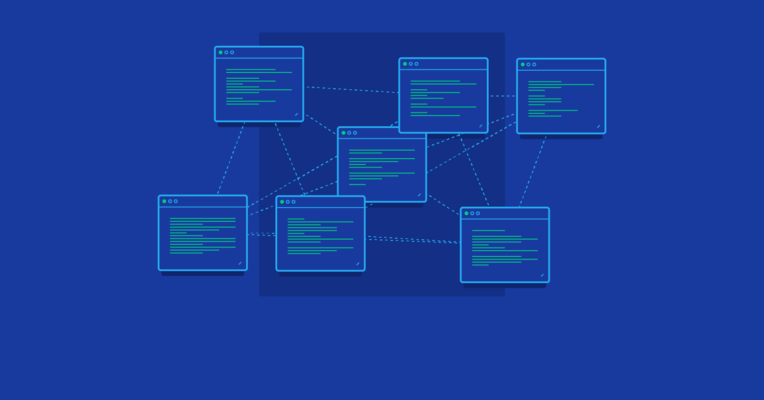Demand for Coders Is Rapidly Increasing
Coders form the backbone of modern enterprises, driving web development, mobile app creation, and e-commerce platform maintenance. Roles under the “coders” umbrella make up the majority of the ten most in-demand tech jobs for 2025, with 90% of IT hiring managers having difficulty finding talent. Meanwhile, trends like automation, machine learning, and the proliferation of APIs are fueling the annual growth of the global software development market, projected at nearly 12%. Hiring coders — even for skills in popular languages like Python and JavaScript — has become a critical challenge for recruiters.
It’s not just large corporations clamoring for technical skills: Startups, small businesses, and even non-tech industries now compete to hire freelance programmers and full-time coders. Specializations like data science, DevOps, and front-end development further fragment the talent pool. Increasingly influenced by the rise of remote, freelance programmers often have neither the need nor desire for on-prem office space.
There are hundreds of technical skills for hiring managers to tell apart. Today’s candidates expect an awareness of the stark differences between Java versus JavaScript, Angular versus AngularJS, and React versus React Native. This guide helps you navigate such subtleties, exploring streamlined strategies to identify, evaluate, and hire a programmer who fits your project perfectly.
What Attributes Distinguish Quality Coders From Others?
Coders can vary widely in their expertise, approach, and impact on a project. Their responsibilities could consist of merely modifying existing code. Their role starts to overlap more with a software engineer’s when they’re responsible for creating a scalable greenfield project. If they’re to manage complex migrations while maintaining uptime for millions of users, they’re much more in “architect” territory.
A coder’s primary technical proficiency lies in the paradigms (object-oriented versus functional) and the programming languages they code in, such as:
-
Python: popular for machine learning projects
-
PHP: widely used for back-end development on web applications, and notably the language powering WordPress
-
JavaScript: the native language of front-end web development and often used for back-end development via Node.js
Professional coders may focus on learning the subtleties and best practices of a small number of languages or expand their frame of reference with many languages and contexts. Both approaches can be helpful, so neither is a surefire indicator of quality (or lack thereof).
The same goes for libraries and frameworks, preexisting codebases commonly used to save time in application development. Examples include:
- The Python full-stack framework Django, and machine-learning and data manipulation libraries TensorFlow, scikit-learn, and Pandas.
- The PHP full-stack frameworks Symfony, Laravel, and CakePHP.
- The JavaScript front-end frameworks React, Vue.js, Angular, and Svelte, and back-end frameworks Express.js, NestJS, Feathers, and Fastify.
A coder already familiar with a particular library or framework will be productive with it much sooner, though some pairs are more similar than others. Engineering context is far more critical, however — a full-stack developer is skilled at front- and back-end work but will have much to learn before being productive at low-level embedded systems programming, distributed cloud computing architecture, or even cross-platform mobile app development.
Coders implement functionality and solve problems. Top-notch coders do so with maintainable, scalable code. They avoid prematurely optimizing for otherwise desirable attributes like speed, memory usage, or code conciseness. At the same time, they balance this by avoiding algorithms and architectures that exhibit code smells. In short, they’re productive — and not in a way that incurs code debt for your team.
How Can You Identify the Ideal Coders for You?
Before you start recruiting, define the scope of your project and as many technical specifics as possible. For example, if you’re building an e-commerce platform, there are two different skill sets to look for if your task is WordPress integration versus if your Shopify storefront needs performance optimization.
Nonetheless, it pays to seek the appropriate level of expertise. Junior coders excel at smaller tasks like creating HTML templates, tweaking CSS, and writing simple scripts. Mid-level talent can handle more advanced scenarios like test-protected refactoring, SQL optimization, and implementing security best practices. Senior programmers bring the years of experience needed for complex requirements like scalable application architecture, idempotent deployments, and strategic technical debt management.
Though it’s ideal to find a candidate whose skill and experience level firmly match your project needs, coders must still be adaptable. Modern projects often require blending disciplines, such as integrating machine learning with social media APIs or ensuring website design aligns with SEO best practices. Even without blending, most tech stacks bring with them an ever-evolving entanglement of dependency and deprecation that keeps top coders evolving with it—lest their projects succumb to the constant stream of emerging security vulnerabilities.
Suppose your team lacks a project manager who can provide you with an appropriate skill profile for your intended new hire. In that case, it can make sense to hire a generalist freelance developer, at least mid-level, who can help make the appropriate hiring recommendations for skills outside their wheelhouse.
Where to Hire Programmers
When it comes to building your team, one of the most common questions is where to hire programmers who fit both your technical needs and company culture. Options range from global freelance platforms, to niche coding communities, to traditional job boards and local recruiting agencies. Each avenue has its strengths: freelance sites provide speed and flexibility, while specialized communities and agencies often yield higher-quality, long-term candidates.
How to Write a Coder Job Description for Your Project
A well-crafted job description is essential for attracting top talent. If you haven’t narrowed your search to a more specific role, begin with a software developer job description template and customize it by including a clear project overview and detailing expected deliverables.
Include not only languages, libraries, and frameworks but also specific technical tooling, platform, and service requirements. For example, for SQL-based projects, which RDBMS (e.g., PostgreSQL, Microsoft SQL Server, or MySQL) do you use? For cloud-based products, which cloud provider (e.g., AWS, GCP, or Azure)? For desktop software or mobile apps, which OSs do you need to support (e.g., Windows, Linux, Mac, iOS, Android)? The presence of details like these is highly effective at saving your time when screening and vetting candidates.
Lastly, emphasize — in the role title itself, if there’s room — whether you’re willing to hire freelance programmers, remote workers, or part-time workers, or if you only accept a traditional employment model. When hiring remote workers, specify if you are limiting candidates to those in certain time zones.
What Are the Most Important Coder Interview Questions?
Well-crafted interview questions allow you to explore a candidate’s technical prowess, communication skills, and tact. Striking a balance between confidence and openness while showcasing their competence bodes well — you don’t want friction when they integrate with colleagues and interface with stakeholders.
Include questions on recent specifics from the candidate’s LinkedIn or GitHub profile and any technologies, contexts, and approaches used in your project, as in the following examples.
How would you optimize an SQL query to improve performance?
Database optimization is a common need in back-end development to keep applications responsive. The answer here depends on the specific query — and you can use more SQL questions to dig deeper — but the candidate should know standard problem-solving techniques like indexing, query refactoring, and analyzing execution plans.
They might explain the benefits of using composite indexes, avoiding SELECT *, and using JOINs over subqueries where applicable. It would also be a good sign if they mention monitoring tools like Microsoft SQL Server Profiler or how to use commands like SET SHOWPLAN_ALL or EXPLAIN to identify bottlenecks in execution plans.
How would you architect an app with scalability in mind?
Without scalability, an app’s success can be its demise. This question assesses a coder’s ability to build systems that can adapt to increasing workloads.
The candidate should know that horizontal scaling (adding more machines) is often more fault-tolerant and cost-effective in the long run than vertical scaling (upgrading individual machine hardware). A strong candidate will emphasize distributed systems and load balancing, e.g., using AWS Elastic Load Balancer or Azure Application Gateway to distribute traffic efficiently.
For NoSQL use cases, they should know distributed databases like Cassandra or how to use replicas in MongoDB. For SQL, they should know about sharding and read replica strategies for RDBMSs like MySQL or PostgreSQL. They might also choose GraphQL over traditional REST APIs that are prone to data overfetching or advocate for caching solutions like Redis or Memcached to reduce database load and improve response times.
How do you manage source control in a team environment?
Though source control management systems (like the de-facto standard Git) make sense even for lone developers, collaboration necessitates a well-thought-out strategy for team processes. The candidate should be able to describe their own typical workflow, even if they don’t know “Git flow” or trunk-based development by name. They should be able to explain how CI/CD pipelines integrate with version control to streamline deployment.
Red flags include a lack of familiarity with concepts like pull requests and rebasing or platforms like GitHub and GitLab.
Why Do Companies Hire Coders?
Coders build software, letting companies express their innovations and propelling their success. From mobile to web to desktop apps, from IoT to industrial automation to video games, businesses need programmers to deliver functionality along with a secure, maintainable end product.
This guide has prepared you to hire high-quality coders, from identifying your needs to crafting compelling job descriptions and interview questions. Equipped with these insights and strategies, you’re ready to find and hire the right coding talent to turn your company’s vision into reality.


























